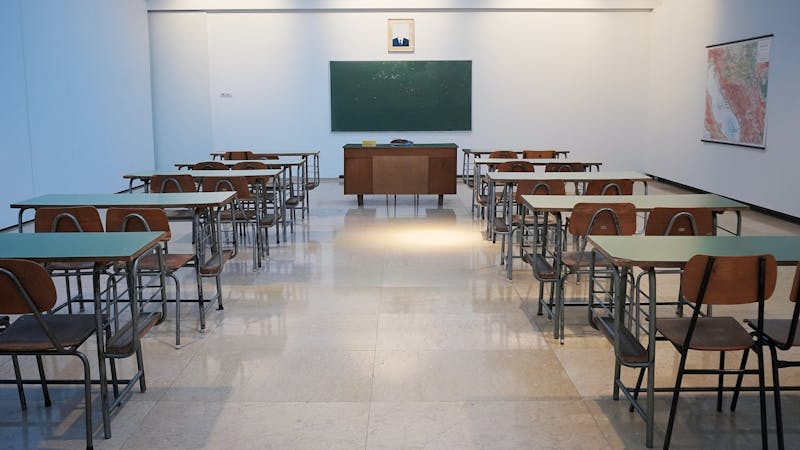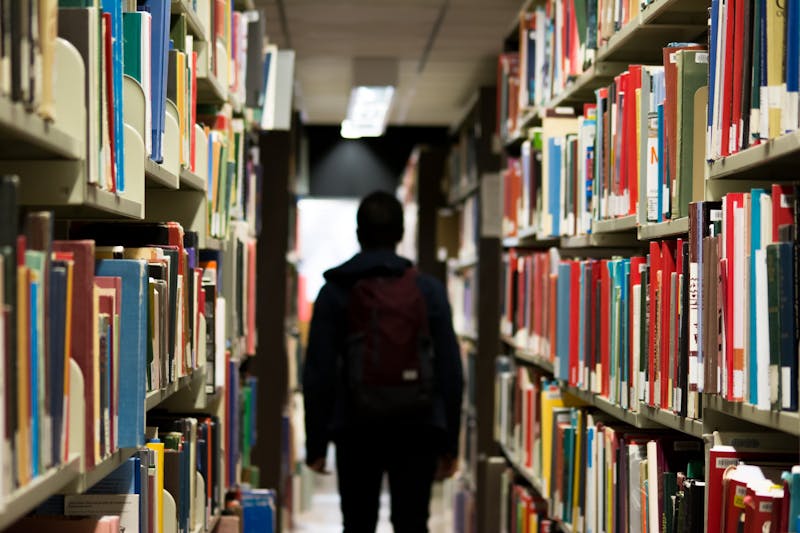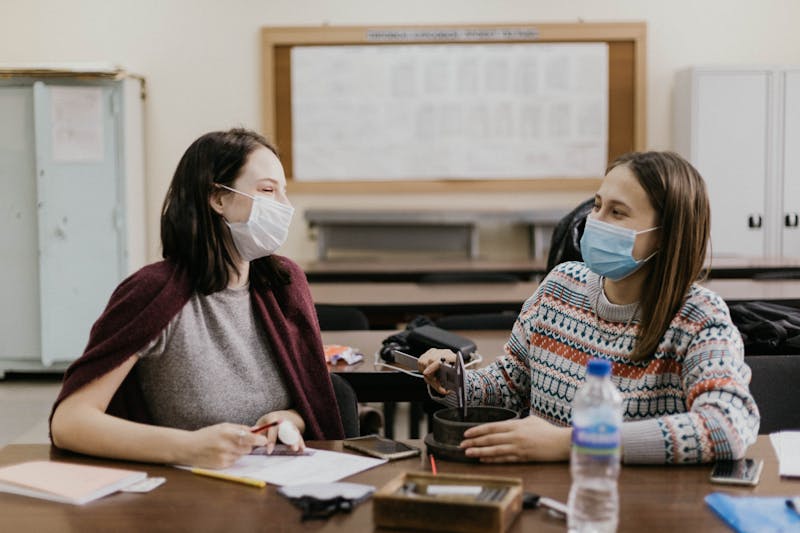Back To School Anxiety - General Guidance and Covid Precautions
 By
Casey Wise
By
Casey Wise

There's nothing that quite fills a child's heart with fear more than the dreaded words, BACK TO SCHOOL. For many, the issue is simply having to say goodbye to a few weeks of carefree days where children are let loose to pursue their own interests, but for others, that anxiety can come from a far more dangerous place. Worries about socializing, workload, and negative influences aren't purely issues from the adult world, but concerns that young minds often have to deal with too. The difference being kids don't often have the mental tools or experience to know how to deal with these stresses or where to seek help.
As parents and teachers, it's crucial to keep an eye on back-to-school anxiety and offer a kind and non-judgmental place to which young learners can turn if they need. This article aims to give those interested some resources and tips for those wanting to learn more about this common concern.
Mental Health Care
No matter the age, it is vital to look after our mental health, especially with extra stresses brought on in the pandemic era. Even the youngest learners absorb the worries and negative atmosphere around them, the problem being they don't always know what's causing said atmosphere. For these reasons, parents and teachers must make sure that students aren't showing any big shifts in behavior. They must keep an eye on their socializing skills and try to encourage conversation by partaking in activities together.
It's understandable that adults don't like to think of young minds suffering from anxiety and worsening mental health, but it's their responsibility to be ever vigilant. Here are some warning signs that should be looked out for.
- Extreme outbursts or being irritable
- Persistent Sadness - more than a few weeks
- Talking about or actually hurting themselves
- Withdrawing from social interactions and friends
- Frequent headaches
- Changes in academic performance
- Loss of weight
- Avoiding or missing school
If a few of these signs are being noticed, it may be time to have a professional make a diagnosis. This may be from the child's doctor, who might then recommend the child be evaluated by a specialist, such as a psychiatrist, psychologist, social worker, or other mental health care professional.
The Importance of Listening
No one likes being treated dismissively, and that's no different to children. Most adults have the confidence or past experience to articulate what's on their minds and what's causing their stress. Younger people often have difficulty verbalizing what's worrying them and could do with a figure they admire helping them work through their anxiety. One way to ensure the child in your care feels understood and accepted is by utilizing something termed 'active listening.'
All adults have busy days, but it's crucial that you give a child your full attention when they come to you with an issue. Stop what you're doing, make full eye contact, get down to their height level and repeat anything you feel you've misheard. Repeating or 'reflecting' back the problem or statement to the child reassures them as it demonstrates you've properly absorbed what they told you. This, in turn, will give them more confidence to deliver more information or even come back another time with any future problem that's weighing on their mind. This isn't just for younger kids too, this works really well in the chaotic teenager years and can avoid some big arguments that often come with the territory.
Anxiety & Covid-19
It's difficult to talk about dealing with anxiety without mentioning what's happened in the world over the last couple of years. Covid-19 has made a lot of things that we once took for granted much more difficult, and with that comes increased anxiety and the importance of good mental health. With all that said, it is still possible to have a positive school experience while following safety precautions and Covid guidelines.
The first step towards safety in school during the era of the coronavirus is to get your child vaccinated. With the vaccine, the spread of the virus is significantly reduced, and its symptoms are a lot less prominent. The CDC has some excellent links which explain the vaccine in detail, and everyone should be doing what they can to stay safe. Secondly, schools should be increasing the ventilation of classrooms, considering online lessons, or even classes outside.
Not only do these measures keep your child safe, but they can also significantly reduce the stress of uncomfortable classroom configurations. Finally, keep your child in good mental health by taking all the personal measures you need to, whether that be getting them to wear a mask, social distance, or getting them to take a few days off to step away from technology and find themselves.
Resources For Parents
As a parent, understanding and communicating with your child about anxiety can seem daunting. We all think we can understand other people's experiences based on our own, but that is often not the case, and having the right resources and information can be invaluable. Here are a few resources we have gathered that are definitely worth checking out:
- SAMHSA Back To School Health Kit
This incredibly detailed PDF is a complete guide to dealing with anxiety in the post-Covid era. SAMHSA's health kit is designed to help inform conversations through a 'trauma-informed, equitable, and compassionate lens,' helping everyone in the school system to understand anxiety more.
- MHTTC Back To School Preparation
The MHTTC has a great slideshow that can be used to inform anyone in the school system about anxiety and the stresses induced upon return. The MHTTC aims to 'Increase understanding of strategies... promoting student resilience, wellbeing.' We highly recommend checking out the slides.
- NCTSN Post Covid Support
As we discussed, the pandemic has contributed towards anxiety negatively, and getting back to the swing of things, so to speak, is a little harder right now. The NCTSN has created a great resource for parents to help support children and talk to them about COVID-19 and what that might mean for their mental health.
- SPRC - Preventing Suicide
Suicide may seem like a dark topic, and it's often still taboo to talk about it. However, leaving anxiety and depression to consume someone without the right help can lead to things as serious as self-harm, mentally and physically. The Suicide Prevention Resource Center has an excellent support sheet that every parent should read.
Conclusion
The world has changed a lot over the last few years, and for children and young adults, there are so many adjustments to be made when going back to school. Anxiety, as we know, is a serious issue and is something most of us will come into contact with at some point during our lives. However, anxiety doesn't need to take over, and there are ways to deal with it. Taking the necessary steps to ensure that both children and parents are educated in mental health is paramount to a happy future. Hopefully, this article has shared some useful resources and made your children's journey back to school a little easier.
Resources:
- Get The Best Out Of Your Mask - Mayo Clinic
https://www.mayoclinic.org/diseases-conditions/coronavirus/in-depth/coronavirus-mask/art-20485449 - Vaccinations: Government Link CDC
https://www.cdc.gov/coronavirus/2019-ncov/vaccines/ - Ventilation In schools - CDC
https://www.cdc.gov/coronavirus/2019-ncov/vaccines/ - Health Kit - SAMHSA
https://mhttcnetwork.org/centers/mhttc-network-coordinating-office/supporting-student-mental-health - Back To School - MHTTC
https://mhttcnetwork.org/centers/southeast-mhttc/product/strengthening-school-communities-safe-supportive-return-part-2 - Post Covid - NCTSN
https://www.nctsn.org/resources/supporting-children-during-coronavirus-covid19 - Suicide Prevention - SPRC
https://www.sprc.org/resources-programs/role-high-school-teachers-preventing-suicide-sprc-customized-information-page - Active Listening - CDC
https://www.cdc.gov/parents/essentials/communication/activelistening.html - Warning Signs - Mayo Clinic
https://www.mayoclinic.org/healthy-lifestyle/childrens-health/in-depth/mental-illness-in-children/art-20046577
About the Author

Casey Wise
Casey Wise is a British journalist, creative copywriter, and music creator with a deep passion for language, travel, and technology. Based in Barcelona, his work extends from local start-ups and newspapers to university radio and the British NHS.
Recent Clues
- Vurnon -, Curaçao midfielder; 2016-17 EFL Championship winner with Newcastle United (5) Crossword Clue
- "Friends" actress Aniston, to her fans Crossword Clue
- Ice cream topping Crossword Clue
- Not possible (2,2) Crossword Clue
- Newspaper boss (6) Crossword Clue
- Melody Crossword Clue
- Company left in depression Crossword Clue
- Event cited in an insurance policy Crossword Clue
- It may order you to stop excluding Scotland Yard from fraudulent accident log (8) Crossword Clue
- Did moan about red card Crossword Clue
- Vats Crossword Clue
- Not supporting Crossword Clue
- Nobel Prize city Crossword Clue
- Expose Crossword Clue
- Smidge Crossword Clue
- "___ the door please" (doorbell alarm) Crossword Clue
- School is underlying place for rebellion Crossword Clue
- Denigrate (9) Crossword Clue
- Unable to disperse last of large dust clouds Crossword Clue
- Rotter passes attendants on course Crossword Clue
- Coat rack part Crossword Clue
- Unstressed-stressed metrical feet Crossword Clue
- Cut corners Crossword Clue
- Ctrl-___-Del Crossword Clue
- Very expensive Crossword Clue
- Stock component of stunt flier's tail (5,4) Crossword Clue
- Cherry's center Crossword Clue
- Convenes where pork, bacon and ham discussed? Crossword Clue
- Volcanic dust Crossword Clue
- Big group of people Crossword Clue
- Neighbor of "#" on a telephone keypad Crossword Clue
- Examine (4) Crossword Clue
- Close by Crossword Clue
- Deviated from a straight course Crossword Clue
- Type of unleavened bread popular in India and the Caribbean (4) Crossword Clue
- A grand...or what "K" means in 50k Crossword Clue
- Cold War power, briefly Crossword Clue
- Set apart (7) Crossword Clue
- Units of data Crossword Clue
- Member on foot in ghetto escapes Crossword Clue
- Not so contaminated (5) Crossword Clue
- Old Celtic jewellery with a twist (4) Crossword Clue
- Fine, at NASA Crossword Clue
- Welcoming employee Crossword Clue
- Mediterranean island Crossword Clue
- Decorative feather Crossword Clue
- Artist's stand (5) Crossword Clue
- 1970s tennis champ Smith Crossword Clue
- Grassy lawn patch Crossword Clue
- Image file type: Abbr. Crossword Clue
Trending Clues
- Change of position Crossword Clue
- Begrudge eating prior to show Crossword Clue
- Nights of yore Crossword Clue
- Board game from Hasbro, which involves forming words with tiles on a grid Crossword Clue
- Animated comedy film "___ of Dogs" Crossword Clue
- Greek wrap? Crossword Clue
- Undecided elector (8,5) Crossword Clue
- Excellent Crossword Clue
- Vintage wrinkle removers Crossword Clue
- "Yucky!" Crossword Clue
- Taxonomic category between kingdom and class Crossword Clue
- Concerning Crossword Clue
- Britishly precious Crossword Clue
- Gulping (8,2) Crossword Clue
- Ocean ova Crossword Clue
- Lith., once Crossword Clue
- Soft tissue Crossword Clue
- Intolerantly authoritative Crossword Clue
- Cheekier Crossword Clue
- Loci Crossword Clue
- Emulate Sinbad, say Crossword Clue
- Degree of difference (8) Crossword Clue
- Repose Crossword Clue
- Outstanding performance in sport (7) Crossword Clue
- Retinal ___ (4) Crossword Clue
- Plato's tutor (8) Crossword Clue
- Trickster figure in Native American folklore Crossword Clue
- Chillaxed, say Crossword Clue
- "Moving right along ..." Crossword Clue
- 7" platter (6) Crossword Clue
- Mango's big discard Crossword Clue
- Corset component Crossword Clue
- Norwegian saint Crossword Clue
- Flattering remarks Crossword Clue
- Jump and shout for joy Crossword Clue
- Boxer Baer Crossword Clue
- Knock into middle of shelf with family's dishes Crossword Clue
- Source of some Jumbotron entertainment Crossword Clue
- Slowly, in scores Crossword Clue
- Extract the flavor of by boiling. Crossword Clue
- Mild or moderate (6) Crossword Clue
- Excel Crossword Clue
- Cute word for pets Crossword Clue
- More than enough Crossword Clue
- Celtic or Bull, e.g. Crossword Clue
- Grad sch. thesis Crossword Clue
- Rigid document carriers (7,5) Crossword Clue
- Possible pronoun pairing Crossword Clue
- Cunning, like Mr. Tod or Swiper Crossword Clue
- Electronic delights that you may keep inside a time capsule Crossword Clue


